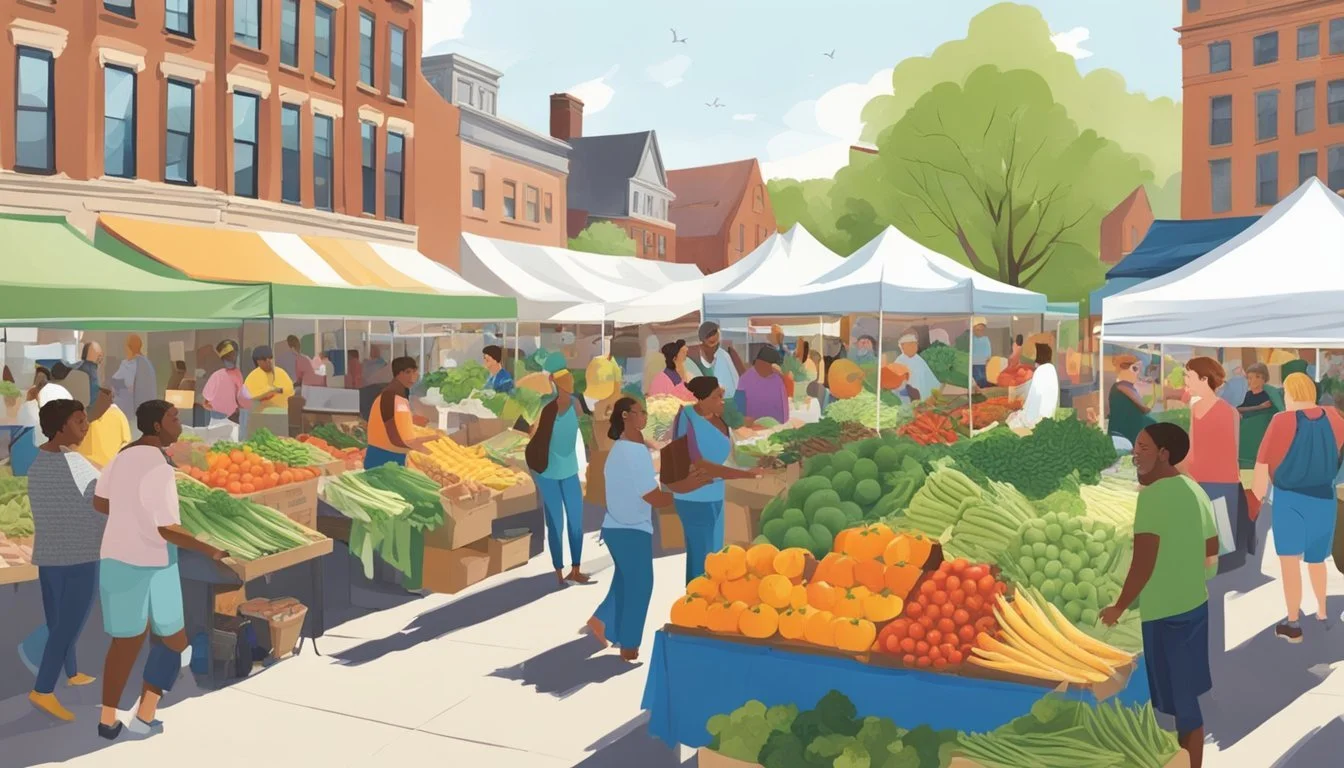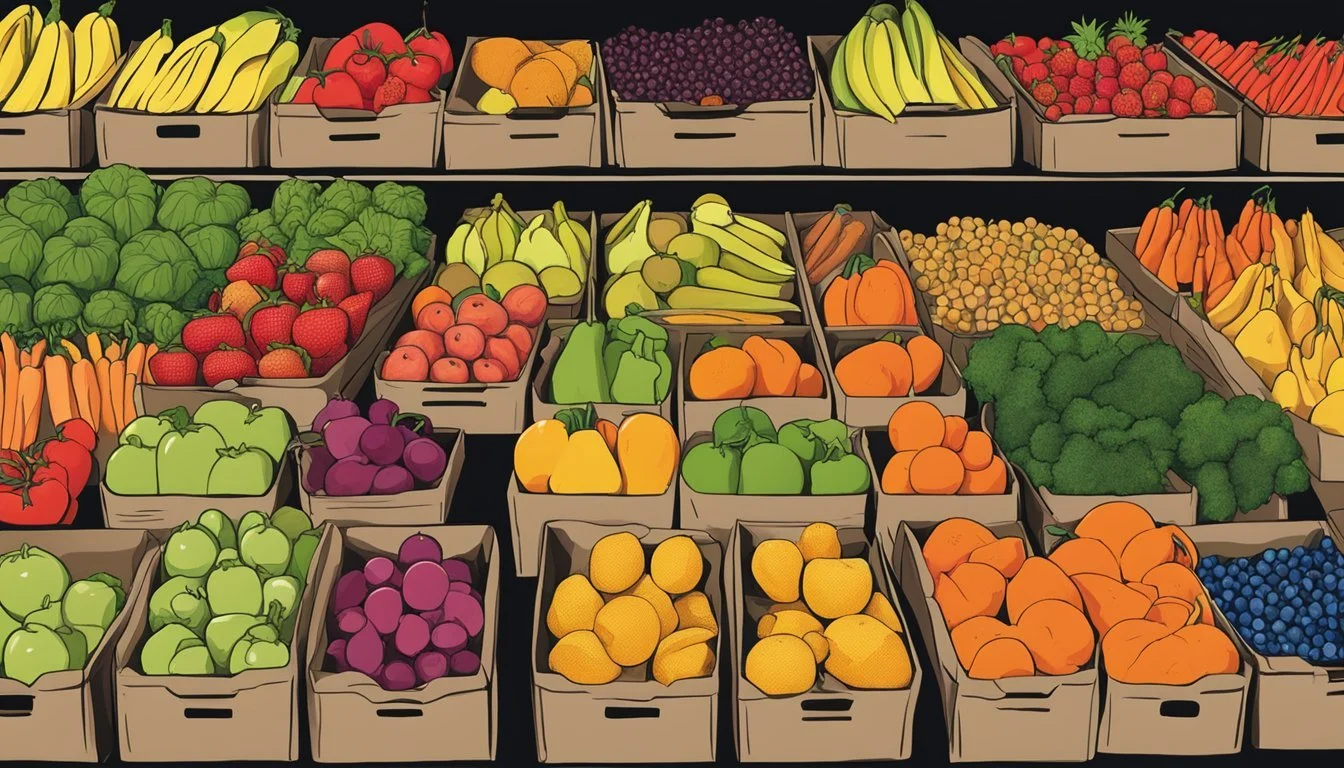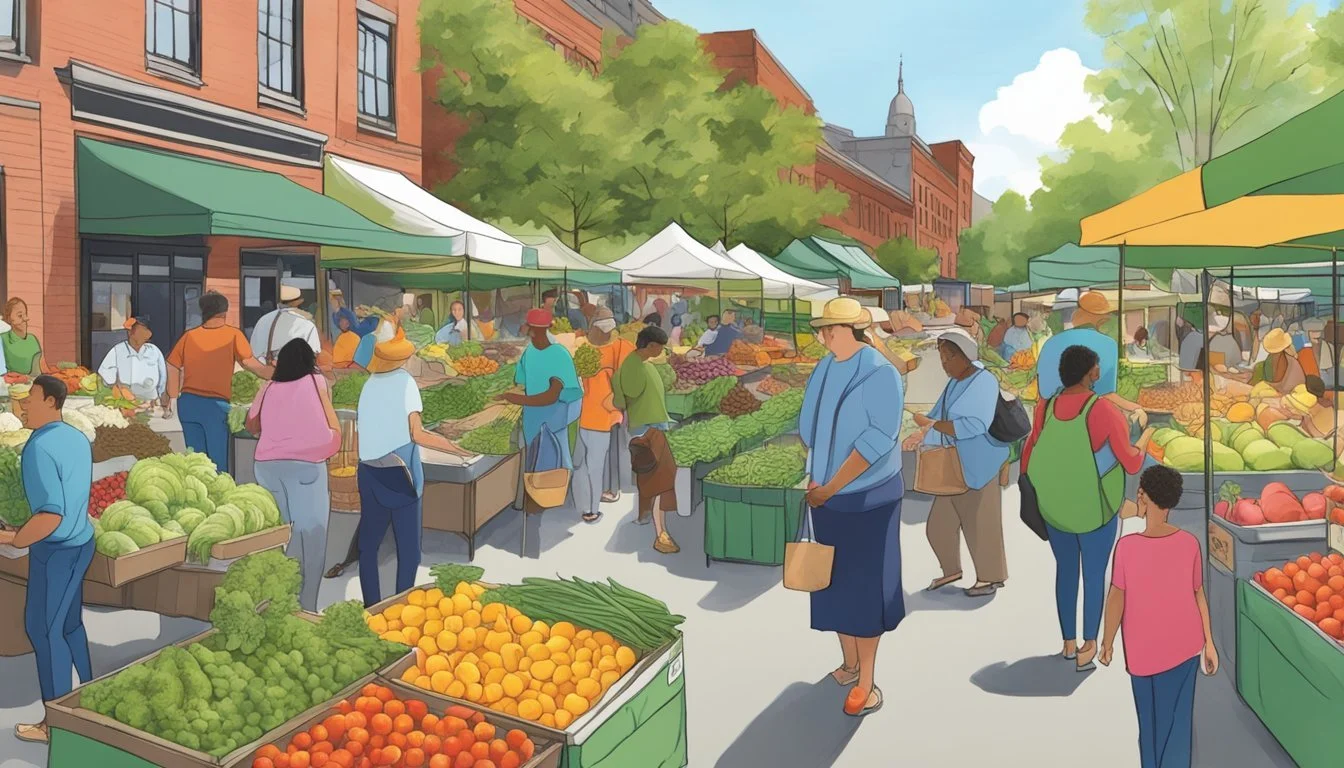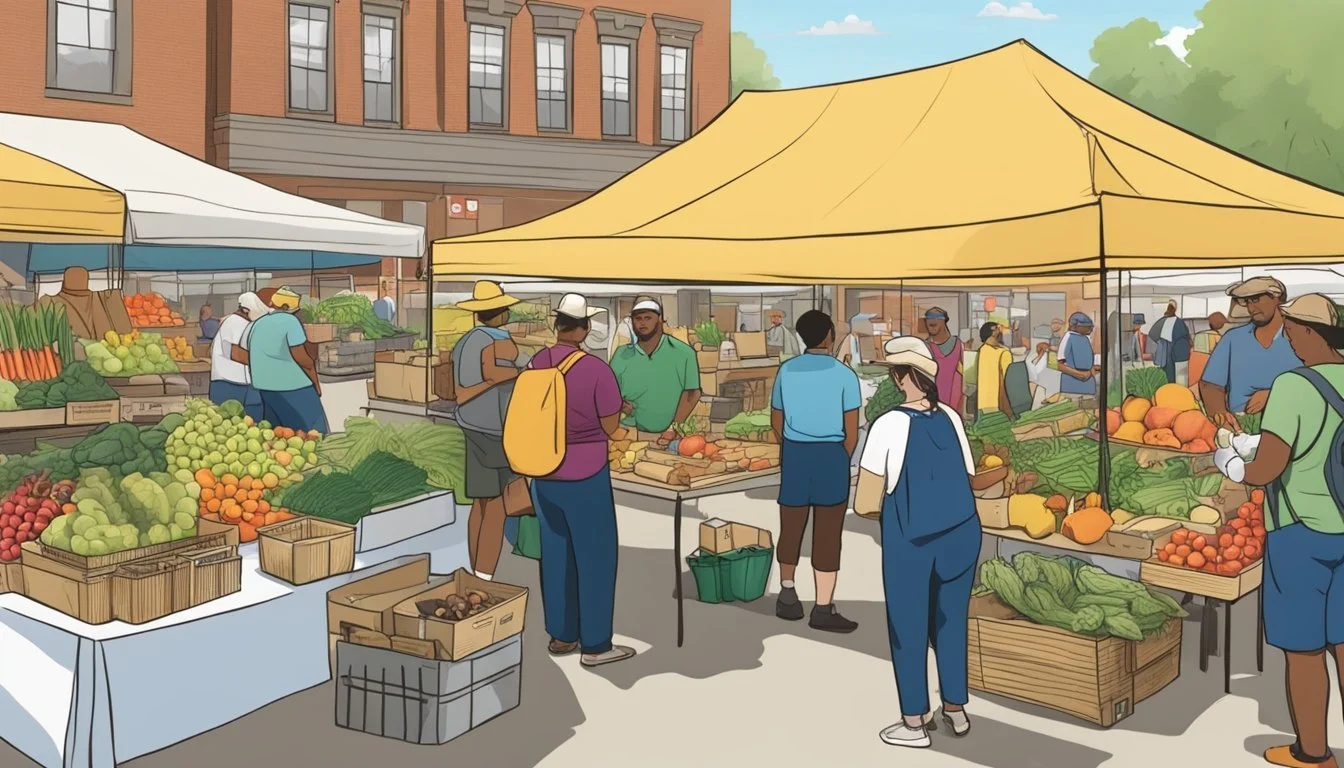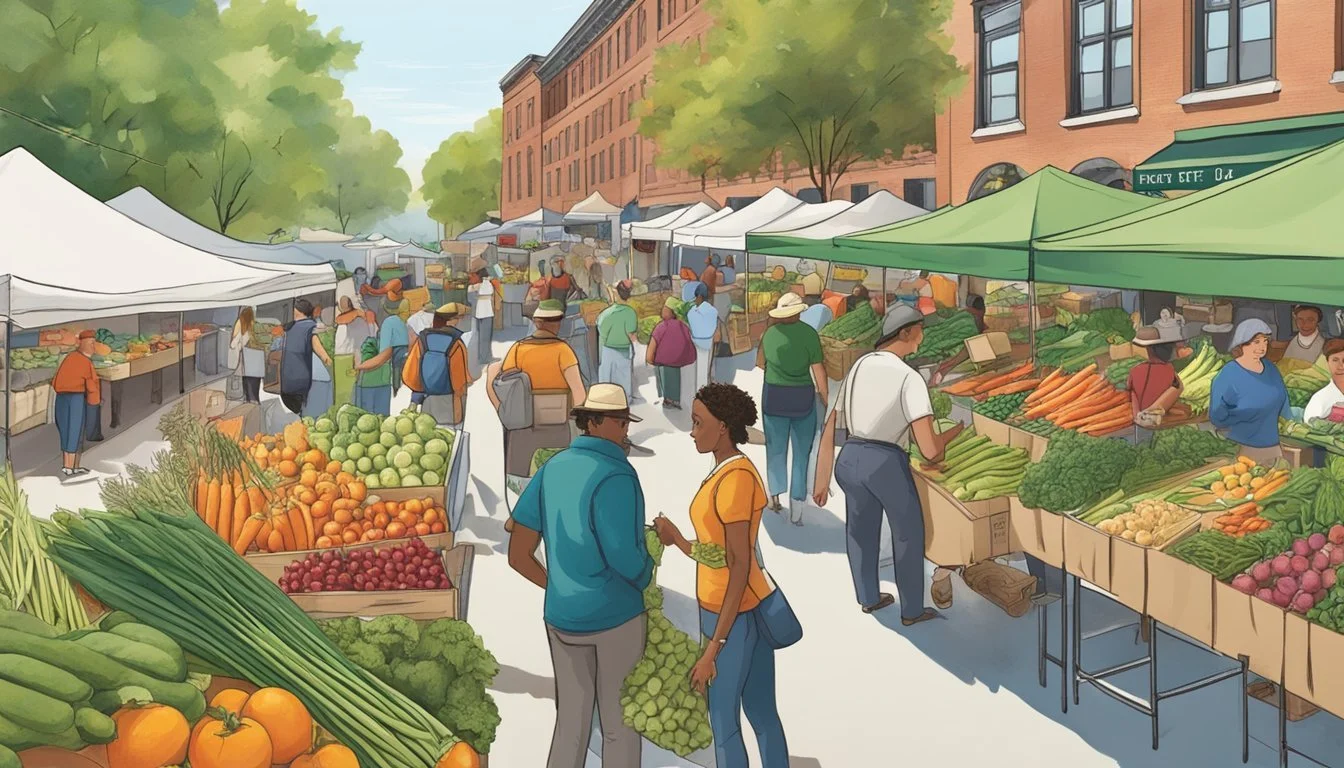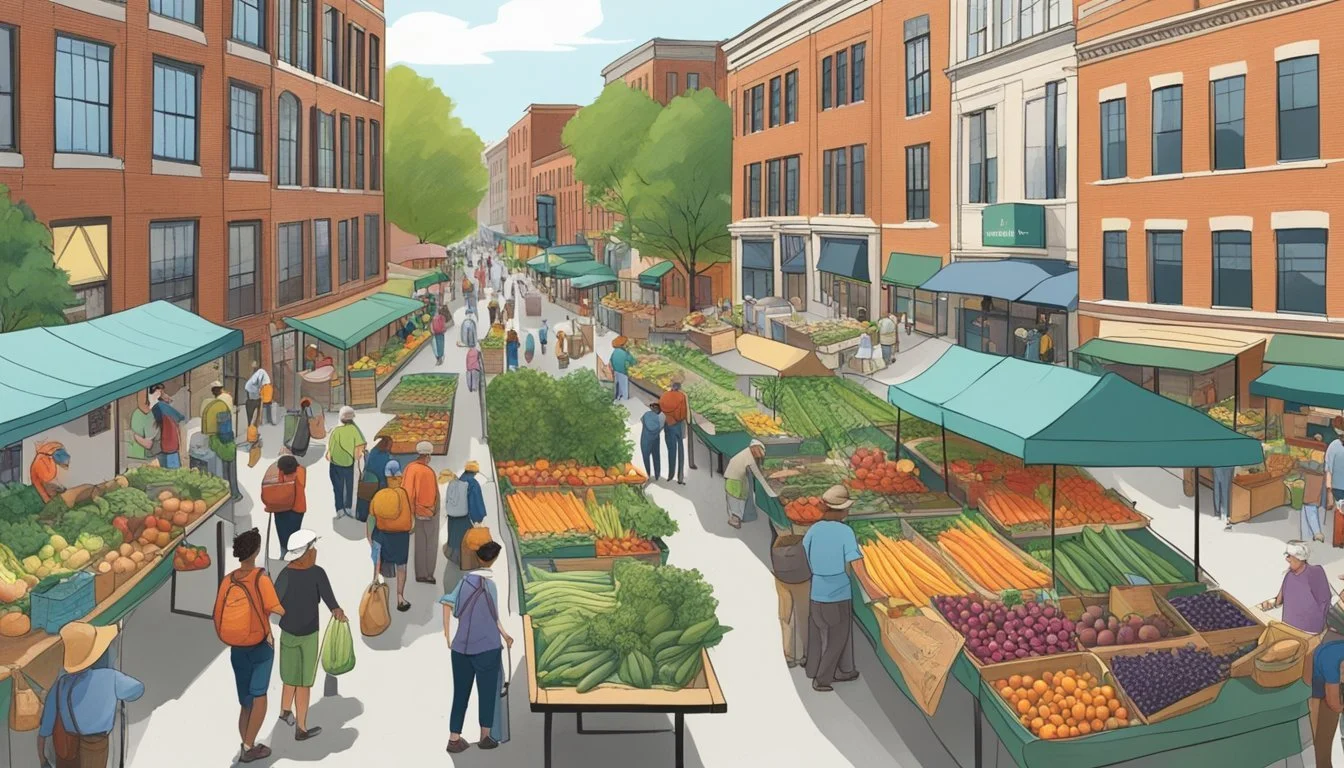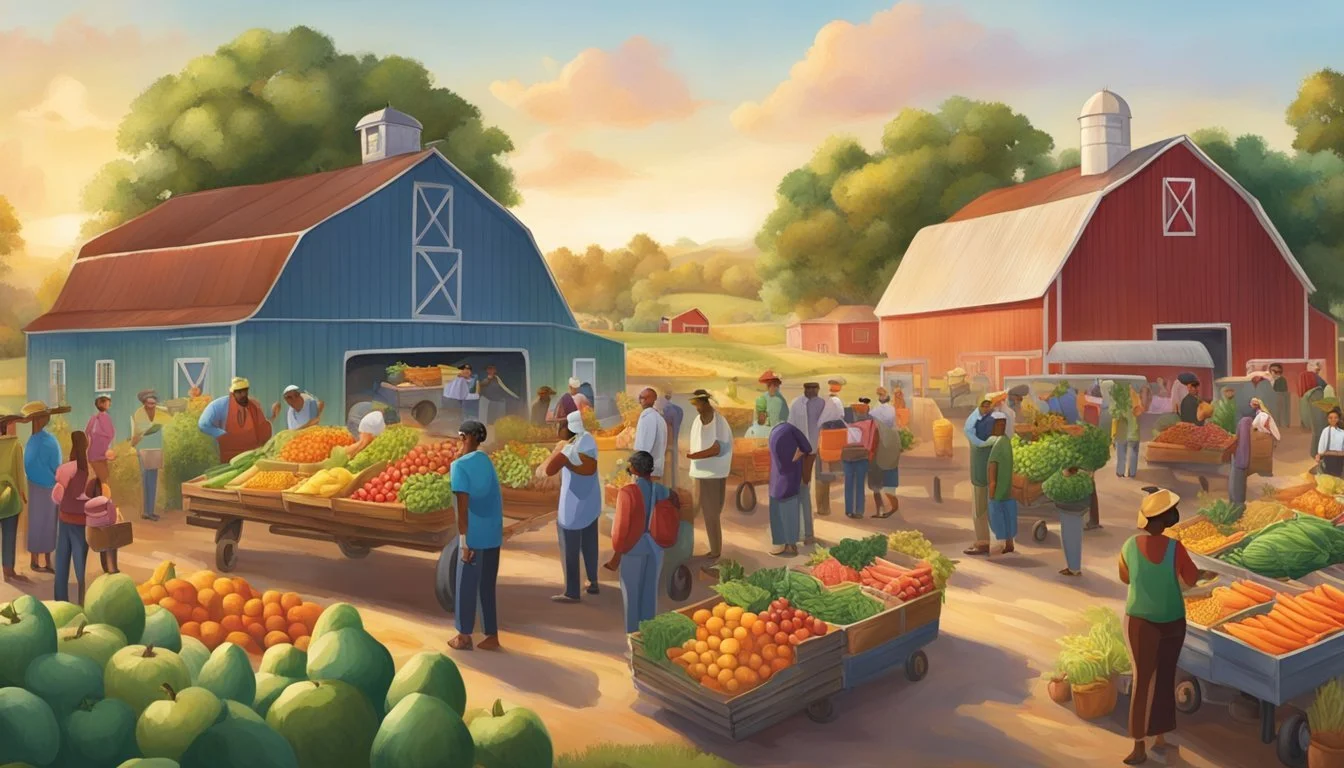Community Supported Agriculture (CSA) in New Haven, CT
A Guide to Local Farm Shares
Community Supported Agriculture (CSA) is a thriving and integral part of New Haven, Connecticut's local food system. This model of food distribution connects consumers directly with local farmers, fostering a relationship that extends beyond the typical marketplace interaction. Patrons of CSA programs purchase shares of a farm's harvest in advance, providing them with a regular allocation of seasonal produce and other farm goods while offering farmers a stable source of income and a guaranteed market for their produce.
The city of New Haven, known for its vibrant community and academic institutions, has embraced the CSA model as a means to support sustainable agriculture and access fresh, nutritious food. CSAs in the area often include options for farm-fresh vegetables, dairy products, meats, and even baked goods. By participating in a CSA, residents take an active role in the local food economy, reducing the carbon footprint associated with food transport and enjoying produce at the peak of its flavor and nutritional value.
New Haven's CSA programs vary in structure, some offering weekly pickups while others operate on a more flexible schedule. They may also provide opportunities for community engagement, such as volunteer hours on the farm, which can enhance members' connection to the food they eat and the land it comes from. Accessibility remains a key priority, with initiatives like CT NOFA’s Farm Share Program, which helps make CSA shares more affordable to individuals needing financial assistance. Through these and other efforts, CSA in New Haven continues to grow, reinforcing community bonds and promoting a more sustainable food system.
Understanding CSA
Community Supported Agriculture (CSA) represents a partnership between Connecticut farmers and the local community. This model facilitates access to fresh, healthy food while supporting sustainable farming practices.
Concept and History of CSA
Community Supported Agriculture (CSA) is a model where consumers buy shares of a farm's harvest in advance. The concept originated in Japan in the 1960s and made its way to the United States in the 1980s. In Connecticut, the notion of CSA has taken root over several decades.
Origin: Japan, 1960s
Introduction to US: 1980s
Establishment in Connecticut: Progressive adoption since the 1980s
Members buy a "share" and in return receive a portion of the farm's production during the growing season. This financial structure allows farmers to plan for the season, purchase seeds, and secure equipment.
Payment: Lump sum in advance
Return: Weekly produce throughout the season
Benefits of CSA to the Community
The CSA model provides multiple benefits to Connecticut communities. It fosters a closer connection between consumers and their food sources, allowing for a transparent understanding of food production.
Transparency in Food Production: Consumers see where and how their food is grown.
CSAs also aid in maintaining agricultural diversity and promoting environmental stewardship, since farmers are often motivated to grow a variety of crops and use sustainable farming practices.
Agricultural Diversity: A variety of crops can be fostered.
Environmental Stewardship: Sustainable practices are encouraged.
Consumers benefit from access to fresh, healthy food, and farmers benefit from a reliable income stream.
Consumer Benefits: Fresh, healthy produce.
Farmer Benefits: Financial security.
By participating in a CSA, community members actively support Connecticut farmers, which helps to create a resilient local food system.
Support: Community members support local farmers.
Resiliency: A strong, local food system is built.
Through Community Supported Agriculture, Connecticut communities and farmers establish a mutually beneficial relationship rooted in the shared commitment to sustainability and health.
How CSAs Work
Community Supported Agriculture (CSA) programs in New Haven, CT, create a partnership between local farmers and consumers, where members buy shares of the farm's harvest and in turn receive regular allotments of farm-fresh produce. This system promotes shared risk and rewards between the farmers and their members.
Membership and Shares
A CSA membership involves purchasing a "share" of the agricultural output from a local farm. This share equates to a portion of the farm's products, typically allocated on a weekly basis. Members are usually offered different sizes of shares to accommodate various household needs, often categorized as full or half shares, and sometimes customized options.
The Farming Cycle
The CSA farming cycle in New Haven closely follows seasonal patterns. Farmers plan their crop rotations and prepare for planting in the early parts of the year, with the majority of the harvesting occurring in the warmer months. Members receive diverse offerings depending on the time of the season, with early summer shares differing from those in the fall.
Cost Structure and Payment Plans
CSAs typically have a straightforward cost structure, where the price of a share reflects the anticipated yield and operating costs of the farm. Payment plans might vary:
Full Payment Upfront: Members pay for the entire season’s share before the first harvest.
Installments: Some farms allow payment in installments, often with a deposit at the beginning of the season followed by regular payments.
Some New Haven CSAs also offer a farm share program that assists individuals in need of financial help, ensuring that both the farmers and consumers benefit from the arrangement.
Local Farms in New Haven
New Haven, Connecticut is home to a vibrant community of local farms offering CSA shares allowing for a direct farm-to-consumer experience. These farms demonstrate commitment to sustainable farming practices and foster a strong community connection through agriculture.
Massaro Community Farm
Massaro Community Farm prides itself on using organic practices to cultivate a variety of produce. The farm's CSA program is an integral part of their initiative to provide fresh, local vegetables to the New Haven community while promoting food education.
Hindinger Farm
Hindinger Farm, situated in Hamden, CT, has been in operation for over a century. Emphasizing a connection to the land, they offer CSA shares that include a rich bounty of fruits and vegetables, nurturing a relationship between the community and the rhythm of the seasons.
Laurel Glen Farm
Laurel Glen Farm in Shelton offers a diverse selection of fruit and vegetable shares to their CSA members. With a passion for soil health and crop quality, Laurel Glen operates with the community's needs in mind, ensuring a steady supply of fresh, locally-grown produce.
Clover Nook Farm
Clover Nook Farm in Bethany, operating since the 18th century, balances traditional farming techniques with modern sustainable practices. They offer CSA options that provide a weekly selection of farm-fresh produce, thus maintaining their long-standing relationship with the New Haven area.
Produce and Products Offered
New Haven's Community Supported Agriculture programs offer a diverse range of fresh and local products, providing consumers with seasonal and sustainable options directly from local farms.
Seasonal Vegetables and Fruits
The CSA farms in the New Haven area, such as Bishops Orchards and Clover Nook Farm, provide a variety of seasonal vegetables and fruits. Options typically include but are not limited to:
Spring: leafy greens, peas, and strawberries
Summer: tomatoes, corn, cucumber, and blueberries
Fall: pumpkins, apples, and root vegetables
Winter: storage crops like potatoes and winter squash
These offerings vary with the season and are subject to change due to weather conditions and crop rotations.
Dairy, Eggs, and Meat
CSA members can often find dairy products, fresh eggs, and a selection of meats. Local dairy farms may offer:
Milk
Cheese varieties
Yogurt
For eggs and meat, participating farms ensure they are providing:
Freshly laid eggs
Poultry, beef, pork, and sometimes lamb
These products are known for their quality and are raised adhering to ethical standards and humane practices.
Additional Farm Products
CSAs in New Haven don't just stop at traditional farm produce; they often have a range of additional items that include:
Honey: harvested from on-site apiaries
Herbs: such as basil, cilantro, and dill
Flowers: both edible and decorative varieties
Mushrooms: specialty varieties beyond traditional button mushrooms
Certified Organic Produce: when available, for consumers looking for organic options
The additional products are subject to availability and may be offered on a rotational basis throughout the CSA season.
Joining a CSA in New Haven
For residents in New Haven, CT, joining a Community Supported Agriculture (CSA) program offers direct access to fresh, local produce while supporting local farmers and engaging with the community.
Membership Signup
Prospective CSA members in New Haven can sign up directly with local farm programs such as Gather New Haven or through initiatives like CT NOFA's Farm Share Program. To join, individuals should contact farms via email or through their websites. Most CSAs in Connecticut open their memberships for signups at the start of the year. It's advisable to enroll as early as possible to secure a share for the upcoming season.
Pickup and Delivery Options
CSA members can typically choose between pickup and delivery options. Pickup locations may include associated farm stands, local markets, or designated community spots. For instance, Gather New Haven conducts open farm volunteering hours at Ferry Street Farm every Saturday and offers pickups during those times. Members may opt for weekly or bi-weekly pickups of assorted farm-fresh products such as vegetables, fruits, meats, and dairy. Some farms may also provide group delivery services for multiple shares to a single destination within a specified radius.
Community Engagement and Events
CSAs in New Haven often extend beyond simple transactions; they foster community engagement through various events. Gather New Haven, for example, holds drop-in farm volunteering hours that not only provide hands-on farming experience but also allow members to earn their share of produce. Regular volunteers can receive veggies for completed shifts and can also obtain community service credit. By participating in these events, members can deepen their connection to the land and to local agriculture.
Additional Services and Programs
In New Haven, CT, Community Supported Agriculture (CSA) comes with a variety of additional services and programs that enrich the community. These offerings extend from educational initiatives to volunteer involvement, all aiming to strengthen the relationship between local agriculture and residents.
Educational Opportunities
CSAs in New Haven often include educational components where individuals can learn about sustainable agriculture and the importance of local food systems. Gather New Haven, for example, enlightens community members through open farm volunteering hours at Ward St. Farm and Ferry Street Farm, which provide hands-on learning experiences about farming practices.
Volunteer and Internship Programs
Many CSA programs heavily rely on volunteer and internship support. Gather New Haven allows residents to volunteer during specific hours, contributing to the farming operation. In return, volunteers receive the double advantage of vegetables and community service credit, fostering a direct relationship between community effort and agricultural reward.
Donations and Food Banks
The partnership between CSAs and local food banks ensures broader community access to fresh produce. CT NOFA's Farm Share Program is particularly impactful, as it bridges the gap by reducing CSA share costs for individuals needing financial assistance while still ensuring that local farmers receive full payment for their produce. This symbiotic relationship supports both community members in need and the sustainability of local farms.
Financial Considerations
When considering a CSA in New Haven, CT, potential members evaluate the cost structure and financial aid options. Understanding the pricing is crucial for budgeting, and awareness of assistance programs can widen access for those with limited funds.
Understanding CSA Pricing
Community Supported Agriculture (CSA) shares in New Haven, CT, can vary in price depending on the farm and the type of share offered. Typically, the share prices reflect the length of the subscription and the variety of products included. Payment options for CSA shares are diverse:
Cash
Credit/Debit Cards
EBT (Electronic Benefits Transfer)
Direct Bank Transfers
Some CSAs require payment upfront for the entire season, which secures a weekly supply of farm produce for the duration, such as an 18-week program starting in June with prices around $585.
Financial Aid and Assistance Programs
CSA financial aid and assistance programs can help individuals afford fresh, locally grown food. CT NOFA's Farm Share Program is one such initiative that subsidizes the cost for those in need while ensuring that farmers receive full payment. Participants may utilize various assistance programs:
SNAP (Supplemental Nutrition Assistance Program) benefits are often accepted.
Some CSAs participate in the WIC (Women, Infants, and Children) program.
Farmers may offer different models to support financial accessibility, such as:
Sliding scale pricing
Payment plans
Subsidized shares
Prospective CSA members should inquire directly with CSA providers about the specific financial aid options available.
CSA Regulations and Certifications
Community Supported Agriculture in New Haven, Connecticut, complies with specific organic standards and abides by state and federal regulations. These standards ensure that consumers receive quality products while supporting sustainable farming practices.
Organic Standards and Certifications
Organic certification for CSAs is granted to farms that adhere to rigorous guidelines established for organic agriculture. They must avoid synthetic fertilizers and pesticides, use non-GMO seeds, and conserve biodiversity. In New Haven, CT, farms can be certified through the USDA National Organic Program if they meet these criteria.
Certified Organic: Must meet USDA Organic standards
Allowed Substances: Only substances approved by the National Organic Standards Board
State and Federal Regulations
CSAs in New Haven operate under state and federal regulations designed to protect both the consumer and the environment. The Connecticut Department of Agriculture (CT DoAg) provides guidance and support for CSA compliance with these regulations.
Food Safety: Farms must follow the Food Safety Modernization Act (FSMA) to prevent foodborne illnesses.
Labeling: The Connecticut Food Policy Council monitors correct labeling, ensuring transparent communication to consumers.
Farm Inspections: Regular inspections are conducted to certify adherence to organic and safety standards.
Challenges and Considerations
Community Supported Agriculture (CSA) involves shared risk and close-knit relationships. Challenges such as unpredictable weather and maintaining strong relationships are at the forefront for New Haven, CT's CSAs.
Weather and Seasonal Impacts
New Haven CSAs face significant challenges due to weather and seasonal variations. Farmers must contend with extreme weather that can adversely affect crop yields. They need to plan meticulously to overcome:
Unpredictable frosts, which can delay planting or damage early sprouts.
Summer droughts, leading to water shortages and increased irrigation costs.
Severe storms, potentially destroying crops and infrastructure.
The success of a CSA season is often at the mercy of these conditions, underscoring the shared risk between farmers and community members.
The Relationship Between Farmers and Community Members
The relationship between farmers and community members is pivotal in a CSA model. It requires:
Clear communication: Farmers need to set realistic expectations regarding crop availability and delivery schedules.
Trust: Community members must trust farmers to make the best decisions for the farm and the CSA.
Flexibility: Both parties should be willing to adapt to fluctuations in produce availability due to unforeseen circumstances.
Strong, transparent relationships help solidify the CSA structure, ensuring mutual support and understanding of the inherent shared risks involved in farming.
Future of CSA in New Haven
Community Supported Agriculture (CSA) in New Haven is poised for growth. The city's increasing focus on local and sustainable food practices is aligning with the interests and demands of its residents for fresh, farm-to-table produce. This alignment suggests a robust trajectory for CSA programs.
Demand and Education: New Haven citizens are becoming more educated about the benefits of CSAs. They are aware that participation in CSA programs supports the local economy and promotes healthy eating habits. As such, the community's demand is set to rise, encouraging local farms to expand their CSA offerings.
Local Support: The engagement observed during volunteer hours at urban farms, such as Ward st. Farm and Ferry Street Farm, indicates a community ready to support and sustain its food sources. This level of involvement is crucial to the longevity of CSA programs.
Infrastructure Development:
Expansion of drop-in hours
More pickup locations
Increased variety of share options
The infrastructure is adapting to accommodate CSA growth. With expanded drop-in hours for volunteering and an increase in pickup locations, convenience will drive participation. Additionally, diversifying share options will cater to varied consumer needs and preferences.
Technological Integration: Technology will streamline operations, from signups to share management. This modernization will improve efficiency and could redefine how New Haven interacts with its food systems.
In conclusion, New Haven's CSAs are at the cusp of a promising horizon. The city's commitment to local food sustainability, coupled with technological advancement, predict a flourishing future for CSA programs.

